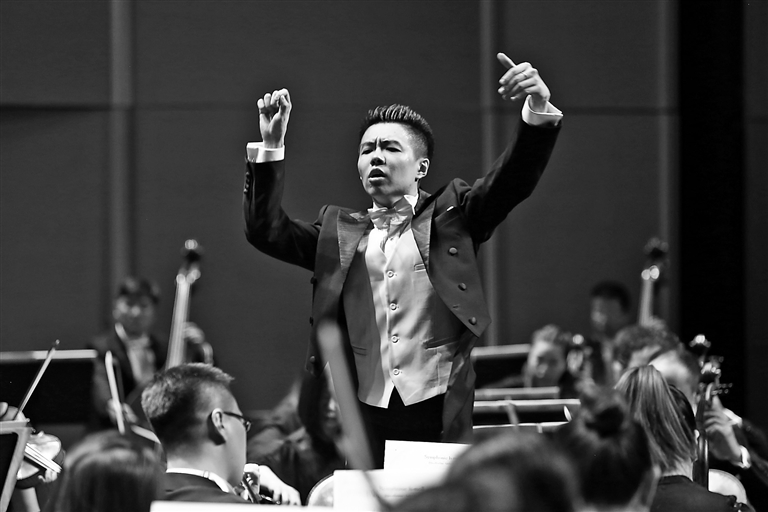

With Shenzhen Symphony Orchestra (SZSO) assistant conductor Chai Haofu at the helm, the orchestra will present Dvorák’s beloved cello concerto and Tchaikovsky’s swansong symphony “Pathetique” this Friday. Young cellist Nie Jiapeng will collaborate as the soloist. From 1892 to 1895, Dvorák lived in the United States, serving as director of the National Conservatory of Music, and during this time he wrote his “Cello Concerto in B Minor, Op. 104” as well as another fan favorite, the “Symphony No. 9” (“New World Symphony”). His cello concerto was an enormous success at its London premiere in 1896, which Dvorák conducted himself, and to this day it remains one of the most popular in cello literature. His masterful use of orchestration, exquisite melodies, and ability to write technically brilliant and virtuosic passages for the soloist are just a few of the features that have made this concerto a classic work of art. The concerto follows a typical structure of three movements of fast, slow, and fast tempi. The melancholic second movement quotes a theme from one of Dvorák ’s own songs, “Leave Me Alone,” which had been a favorite of the composer’s sister-in-law and first love Josefina. Tchaikovsky’s “Symphony No. 6 in B Minor, Op. 74” was the composer’s last work. He died nine days after its premiere in 1893. The work seemed unusually somber, particularly in its finale that, both in tempo and dynamics, fades into nothingness. Tchaikovsky’s brother Modest suggested the French word “pathetique” for a name. Ending with excitement would be a typical way of building a symphony, but in this work, the fourth movement offers slow tempos, long phrasing and intense musical sighs and sobs. For every phrase that rises, three more fall in despair, and it is in the most funereal of moods that the symphony fades to its close. A popular choice with filmmakers, extracts of “Pathetique” have been featured in “Now, Voyager,” the 1997 version of “Anna Karenina,” “Minority Report,” “Sweet Bird of Youth” and “The Aviator,” among others. Nie, born in 1989 in Shenzhen, graduated with full honors with a doctoral degree from the Hamburg University of Music and Theater in 2016. Now a teacher at the Xinghai Conservatory of Music in Guangzhou, he has performed with many famed orchestras at home and abroad as well as at numerous music festivals. Chai studied at the Central Conservatory of Music in Beijing and the School of Music, University of South Carolina in the United States. He won the President of Jury Award at Bucharest Music Institute’s international conducting competition in 2018. Thus far, he has conducted more than 400 concerts of various types. Time: 8 p.m., Nov. 6 Tickets: 50-880 yuan Venue: Shenzhen Concert Hall, Futian District (福田区深圳音乐厅) Metro: Line 3 or 4 to Children’s Palace Station (少年宫站), Exit D(Li Dan) | 
